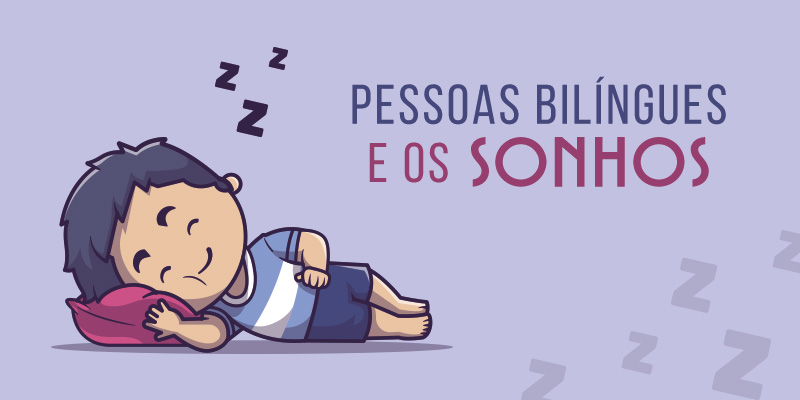Pessoas Bilíngues e os Sonhos
Quinta, 9 de junho de 2022

Você sabe em qual idioma é mais provável que uma pessoa bilíngue ou multilíngue sonhe?
Existem muito poucos estudos sobre bilinguismo e multilinguismo e como eles afetam os sonhos. Esses são estudos pequenos, mas eles certamente descobrem que pessoas que falam qualquer segunda língua, mesmo sem boa proficiência, pelo menos ocasionalmente sonham na segunda língua.
Alguns estudos dizem que seu grau de proficiência em um segundo idioma determina com que frequência você sonhará nele. As pessoas que não são proficientes em uma língua estrangeira às vezes dizem que uma vez ou mais sonharam na segunda língua rudimentar e, no sonho, acreditavam que eram muito proficientes nela.
Quando as pessoas discutem isso, geralmente é como "Por que podemos ser muito mais fluentes em nossos sonhos?"
Os psicólogos dos sonhos dizem que isso é provável porque a área pré-frontal responsável pelas verificações da realidade está fechada. É possível que eles sejam mais proficientes no sonho, mas também é possível que eles se sintam mais proficientes no sonho porque não estão fazendo o autojulgamento usual.
Existem algumas teorias que dizem que os sonhos existem para a consolidação da memória, para a simulação de ameaças e para a realização de desejos. E sim, eles são para tudo isso, e um milhão de outras coisas, assim como nossos pensamentos enquanto acordados.
.
.
.
Do you know in what language is a bilingual or multilingual person most likely to dream?
There have been very few studies on bilingualism and multilingualism and how they affect dreams. These are small studies, but they certainly find that people who speak any second language, even without good proficiency, at least occasionally dream in the second language.
Some studies say that your degree of proficiency in a second language determines how often you will dream in it. People who are not proficient in a foreign language sometimes say that they have once or more dreamed in the rudimentary second language, and in the dream, they believed they were very proficient in it.
When people discuss it, it’s usually along the lines of “Why is it that we can be so much more fluent in our dreams?”
Dream psychologists, say that it’s likely because the prefrontal area that is responsible for reality checks is shut down. It is possible that they are more proficient in the dream, but it’s also possible that they feel more proficient in the dream because they’re not doing the usual self-judgment.
There are a few theories that say dreams are there for memory consolidation, for threat simulation, and for wish fulfillment. And yes, they’re for all of that, and a million other things, just like our waking thought.
.
.
Fonte: https://neurosciencenews.com/bilingual-language-dream-20626/